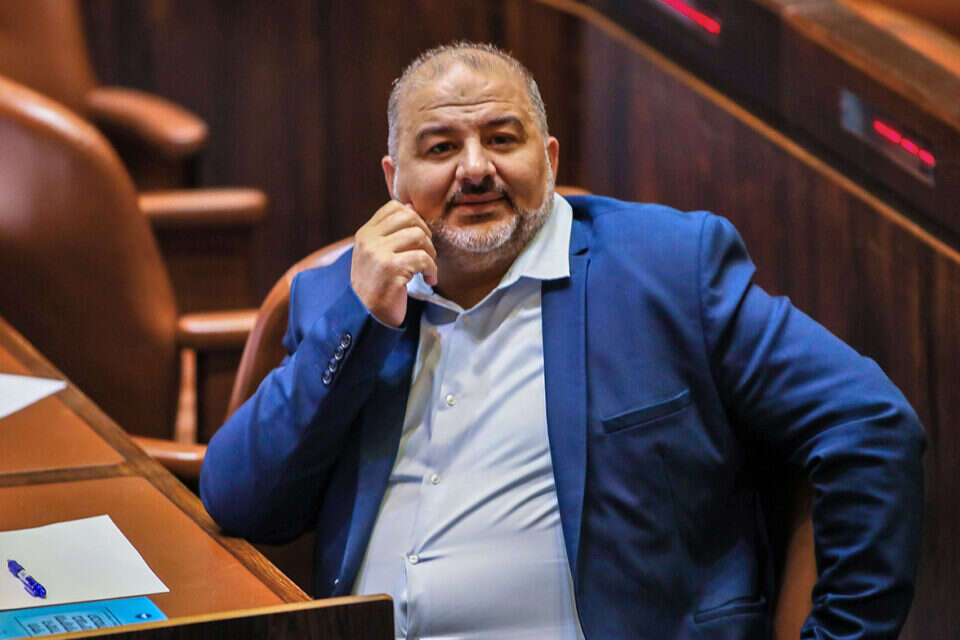After a period of relative stability, Israeli politics is putting Arab society in a state of uncertainty, and especially wondering where we are going from here.
The political surprise under the auspices of MK Idit Silman provides another drama for the political clash between the leaders of the Arab parties.
While the chairman of Ra'am, MK Mansour Abbas, and the chairman of the joint list, MK Ayman Odeh are calculating their next steps, the Arab street is mainly interested in the question of what will happen to the budgets given to them in the past year, led by Mansour Abbas.
According to the mayor of Rahat, Fayez Abu Sahiban, the current government should be given an opportunity to continue working to implement all the steps that Ra'am chairman Mansour Abbas has begun to promote.
"What happened is not a blow to Mansour, it is a blow to the whole coalition. We chose this government, not because it is the ideal thing, but because there was no other substitute. We were between Ben Gvir and Smutrich who deny our existence, and Bennett, so we chose to go with him. "In the situation that has arisen, 60-60, we hope that the joint list, or at least two Knesset members, Ahmad Tibi and Saadi, will join the coalition, because the alternative is Netanyahu."
Prime Minister replaced Lapid with MK Abbas, Photo: Oren Ben Hakon
Muhammad Drawsha, director of strategy at the Givat Haviva Center, says that the chairman of the joint list, Ayman Odeh, should give a safety net to the Bennett government in exchange for repealing the Nationality Law, promoting the Equality Law, and initiating a political process with the Palestinians.
"One possibility is that he can still announce that he is ready to enter the coalition, and if not, then at least he can expand his partnership with this government and support from the outside, in exchange for fulfilling some conditions.
Not all ingredients in common think the same thing.
"MK Ahmad Tibi, chairman of Balad, came up with a more practical approach, but he also thinks about the day after when there will be elections."
According to Darawshe, the joint list should express a practical position.
"This is not an easy situation. We need to find the formula that will preserve the principles and identity values of Arab society in Israel, along with socio-economic issues. Any Arab party that enters the government for something economic, it will not satisfy the Arab public. Therefore MK Ayman Odeh should bring An achievement for Arab society. "
"Nobody knows what will happen"
It is not clear how the chairman of Ra'am, Mansour Abbas, will act.
In the meantime he keeps the cards close to his chest.
Among the supporters of the joint list, there is joy for those who claim to have abandoned the Palestinian issue and adopted an approach of partnership and integration.
The Arab street is torn.
On the one hand, there is appreciation for the chairman of RAAM, Mansour Abbas, who for the first time in political history succeeded in attaching an Arab party to the coalition in Israel, and promoting moves, including directing budgets in favor of Arab society.
The joint list // Photo: Dudi Vaknin,
On the other hand, among his supporters claim that entry into the political partnership was made at too cheap a price.
"He could have raised the entry threshold. I think now Mansour Abbas prefers Bennett to stay, and does not want a foothold of the joint," Darawshe said.
"The Arab public today does not want Netanyahu, mainly because of the experience of the last 12 years that included the Nationality Law, and a difficult de-legitimization process designed to please his political base and his right-wing partners. The current government is largely preferred. But that is not enough. "
The Arab sector is concerned that the budgets enshrined in the coalition agreement will not be realized if the political system goes to the polls, and that it will be difficult to repay the promises and moves placed on the cabinet table.
"No one knows what will happen," said Ali Salem, the mayor of Nazareth.
"Within two years, we have already gone to the polls several times. I think the Arab public will prefer Netanyahu. The main problem is that the Jewish leaders are not working to lead the country together."
Were we wrong?
Fixed!
If you found an error in the article, we'll be happy for you to share it with us

